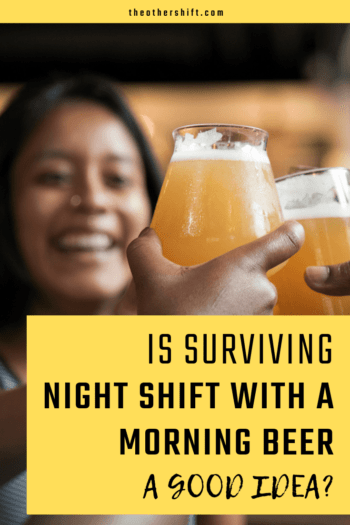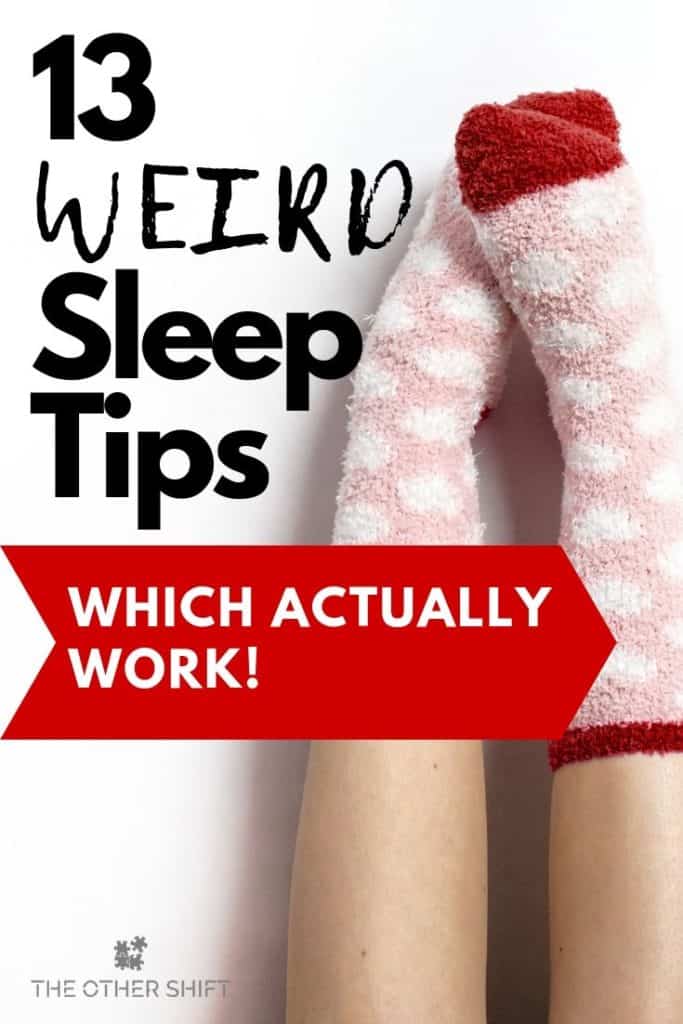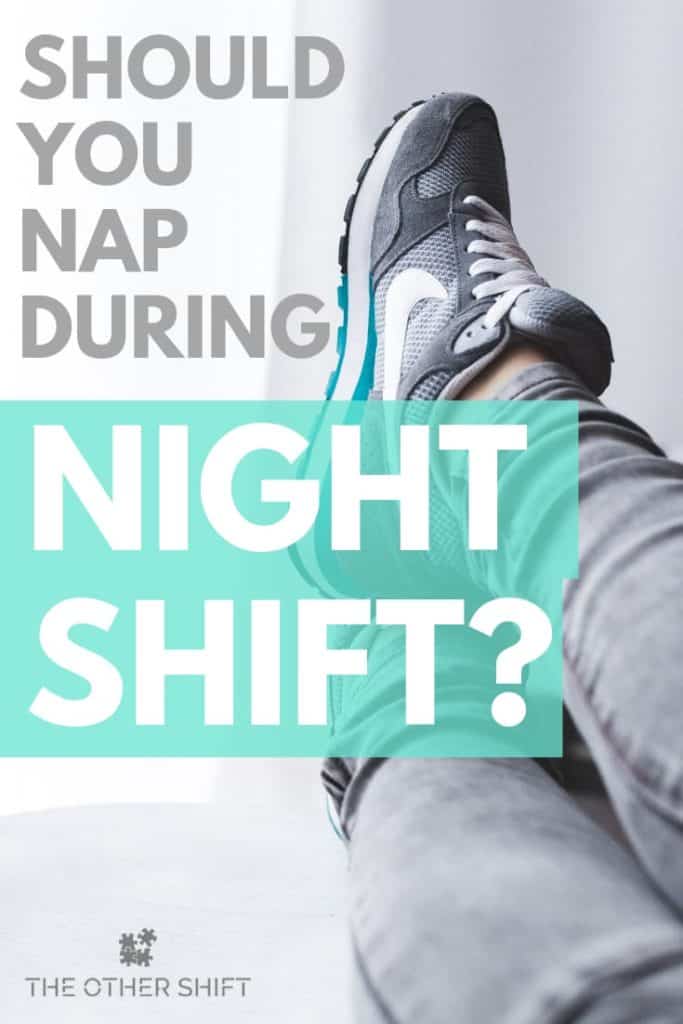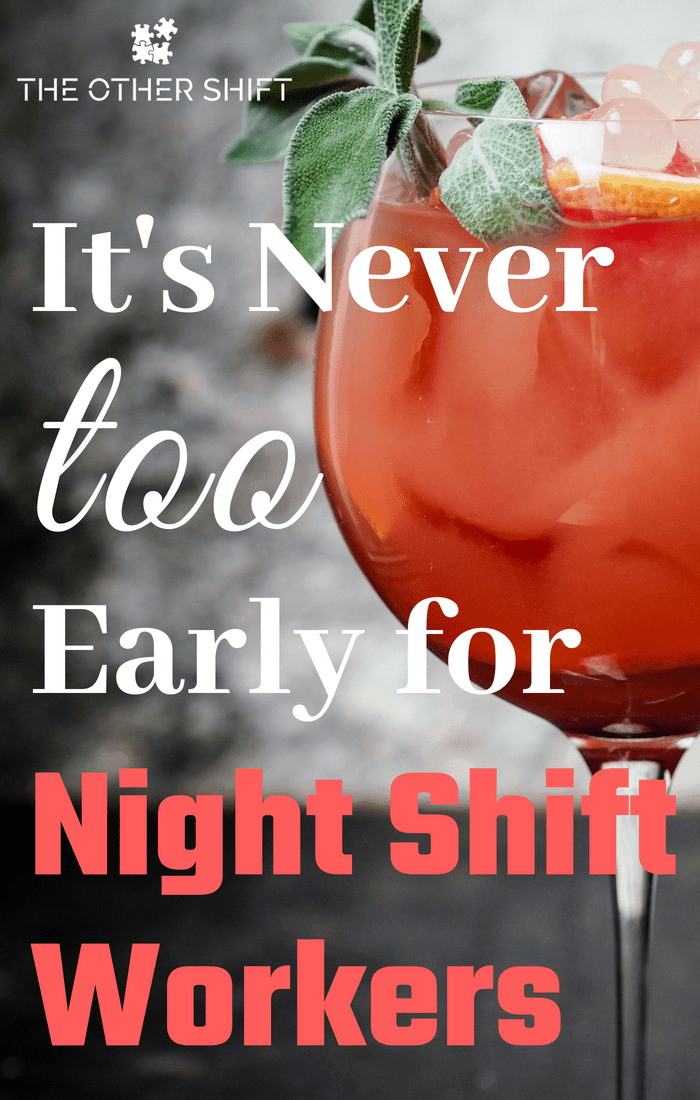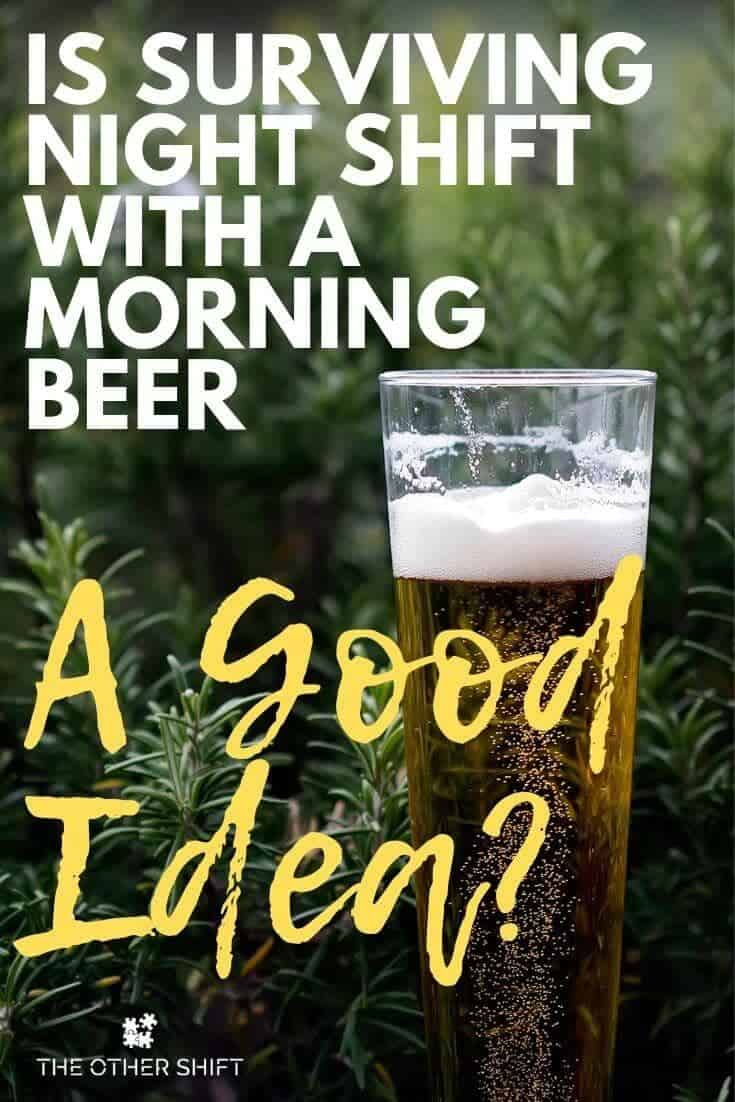Disclosure: This page may contain affiliate links, meaning we receive a commission if you decide to make a purchase through our links, but this is at no additional cost to you. Please read our disclosure and privacy statement for more info.
On the surface, some people may think drinking alcohol the morning after night shift could be the perfect solution to transition from work to home life. You become relaxed, seem to fall asleep quickly and it puts you in a deep slumber. But is there more to it than that?
Should I drink alcohol after working night shift? While it seems innocent, regular drinking after a night shift is not recommended. It can shorten important REM sleep processes and cause sleep disruption through constant bathroom interruptions, sleep-walking and even snoring. It can also magnify the effects of sleep pills commonly taken by night shift workers.
To a 9-5 worker, drinking alcohol in the morning sounds naughty and is certainly not socially acceptable. But for those of us working throughout the night, what’s wrong with a beer after a long shift? Isn’t it just a regular shift flipped around? Let’s find out.
Night Shift, Alcohol and the “Rebound Effect”
Melatonin and adenosine are two important sleep hormones, which are normally tightly controlled around our bodies internal clock or circadian rhythm.
Alcohol, as well as light from our device, see here Blue Light Blocking Glasses Is The Key To Sleep For Night Shift Workers mess around with these hormones, affecting how and when we fall to sleep.
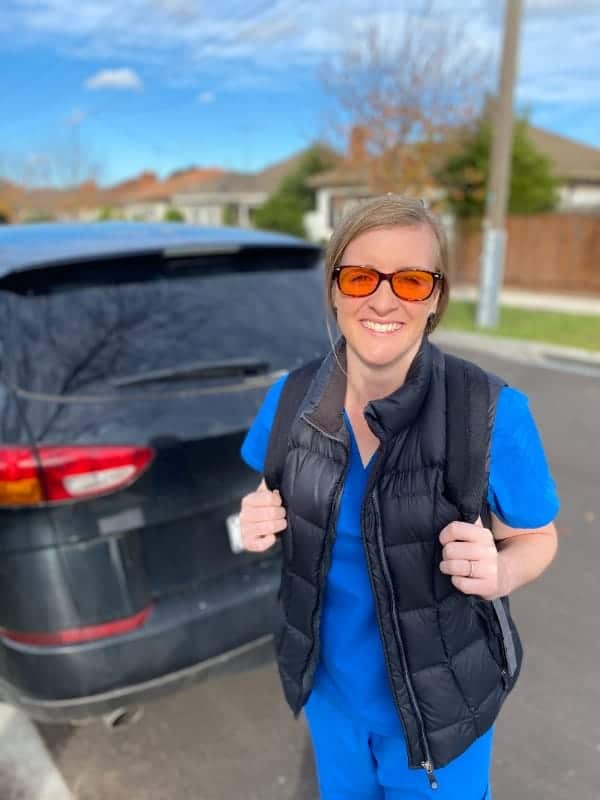
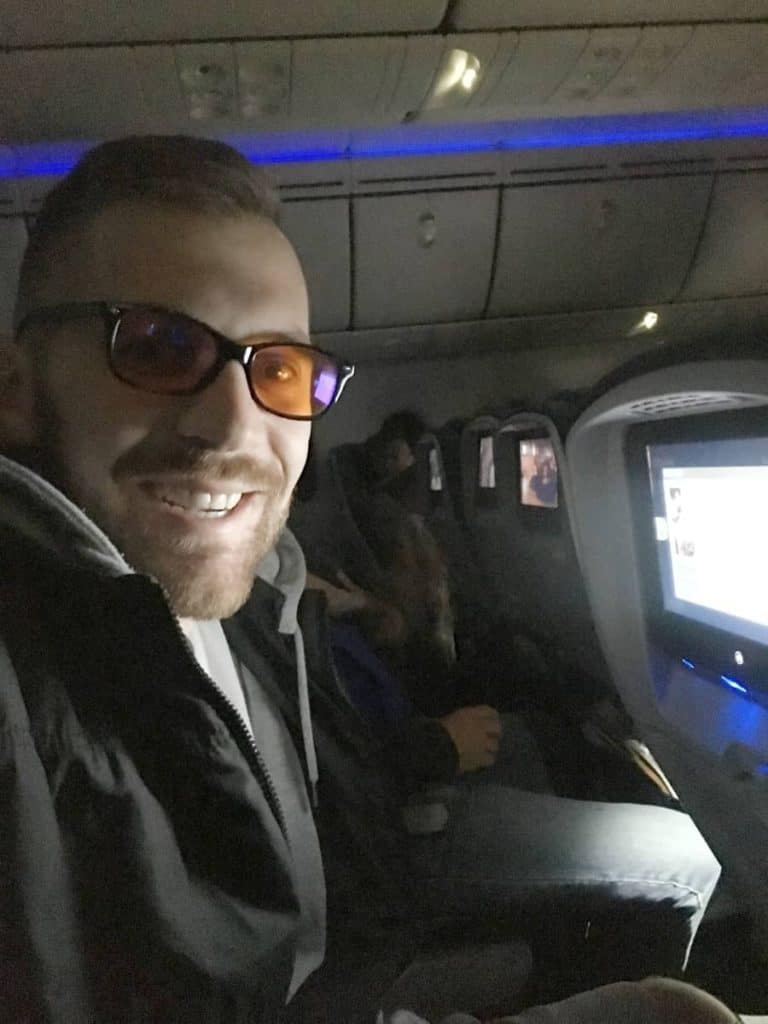
In short, these chemicals are creatures of habit and get pretty upset when we change their routine.
If alcohol is consumed too closely to bedtime and the liver has not had time to break down the alcohol yet, it causes us to frustratingly wake soon after falling to sleep.
Scientists call this the ‘rebound effect.’
Problem with Drinking Alcohol Whilst Working Night Shift
Alcohol Shortens REM Sleep After Night Shift
REM (Rapid Eye Movement) is one of the sleep stages, which is responsible for mental restoration, memory, dreaming and information processing.
Alcohol shortens this important, active stage of sleep meaning we can experience daytime drowsiness and poor concentration.
The more you drink before bed (in the 3 hours prior to sleeping), increases the chance of you struggling throughout the day.
Related: Can’t Sleep After Night Shift? 13 Weird Tips That Actually Work
Constant Bathroom Interruptions
You know what I’m talking about; three beers in and you need to pee, like, now. There are two reasons for this.
Firstly, alcohol is a potent diuretic, which means the hormones responsible for pulling the water back into your body are decreased.
The bladder then fills with fluid, making you need to pee (a lot!).
Secondly, alcohol can irritate your bladder due to the acidic content of your urine. Yeast, acids, and caffeine are the big players here.
You’ll also experience similar issues with curry and spicy foods.
You’ll get very strong urges to urinate but when you do pull off the covers and shuffle to the bathroom, not much happens. Hello, sleepless day!
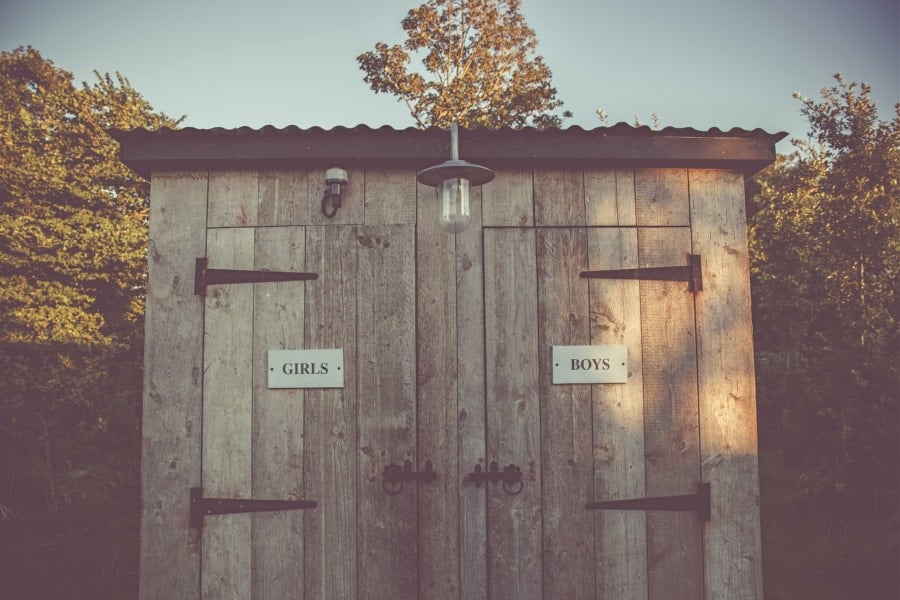
Increased Chance of Sleepwalking
If you have ever seen the film Step Brothers, sleepwalking is generally linked with humor and gives your family a good story to tell.
But did you know it could cause daytime sleepiness, fatigue and insomnia?
Sleepwalking does have genetic links but alcohol can also increase the chance of sleepwalking leaving little or no memory of potentially inappropriate or dangerous events.
Related post: Should You Nap During Night Shift?
Greater Chance of Snoring and Worsening Pre-Existing Breathing Issues
Alcohol acts as a muscle relaxant.
Whilst sleeping, it causes the muscles in your neck, jaw and throat to become so relaxed they can narrow.
Breathing can become forced due to the tightening of the airways, which leads to that chainsaw you never want to hear start, snoring.
For night shift workers who already have a diagnosed breathing condition such as Sleep Apnea, alcohol can make your symptoms worse.
Alcohol impacts your urge to breathe and will slow breathing, impacting on pre-existing conditions.
Related post: Shift Work Sleep Disorder (SWSD) – What Is It and How to Avoid It?
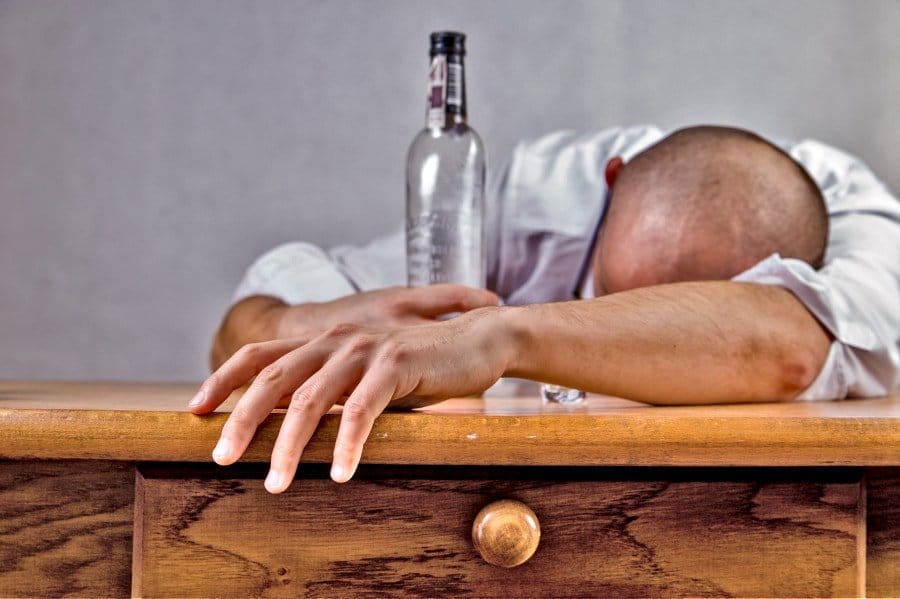
Magnifying the Effect of Sleeping Pills
Do you use medication to help you sleep? Be super careful when mixing alcohol into the equation because both pills and booze directly affect the central nervous system.
At high doses, your heart and breathing rate can slow down significantly leading to scary, permanent health effects.
If you currently take or are interested to learn more about sleeping pills, we have written two posts specifically for you. The first one is called My Top Tip for Taking Melatonin on Night Shift: Plus 10 More and Insomnia and Shift Work Sleep Disorder Medication Review.
Both of these posts were really interesting to put together and we encourage you to have a look before just taking a pill to help you sleep.
It’s Addictive
An innocent morning beer is fine, right? Yes, but self-control can sometimes waver into 2, 3 or 4.
Alcohol increases the production of endorphins, the brain’s natural painkiller, which links to a pleasurable feeling.
The long-term impact of doing this regularly could have a negative effect on your health. So be sure to seek help should you find a morning 6 pack becoming part of your daily routine.

Next…
As you work the night shift there are a couple more posts we wanted to show you which may offer a nice alternative to drinking a beer.
- Pregnant shift worker: Shift Work While Pregnant: Survival Tips from 46 Busy Mom
- Meal ideas: 6 Quick And Healthy Night Shift Breakfast Meal Ideas
- Eating on night shift: Should I Eat On Night Shift? Why Intermittent Fasting Works
- Eating after night shift: What Should I Eat After Working Night Shift?
Summary: Is Surviving Night Shift with a Morning Beer a Good Idea?
One or two alcoholic drinks enjoyed after night shift is totally okay, if it doesn’t become a daily habit.
Steer clear of it within three hours of sleeping, as this gives your liver time to do its thing and the chance of a bathroom break interrupting your sleep decreases!
Even though it might aid your ability to initiate sleep, it, unfortunately, won’t last and can lead to crippling health conditions in the long term.
Don’t get us wrong, we love a gin or vodka as much as the next person, but moderation is the key here!
Did you enjoy this article on drinking alcohol after anight shift or feel like you have anything else to add? I’d love to discuss it with you in the comment section below this article.
Cheers
(literally!),


